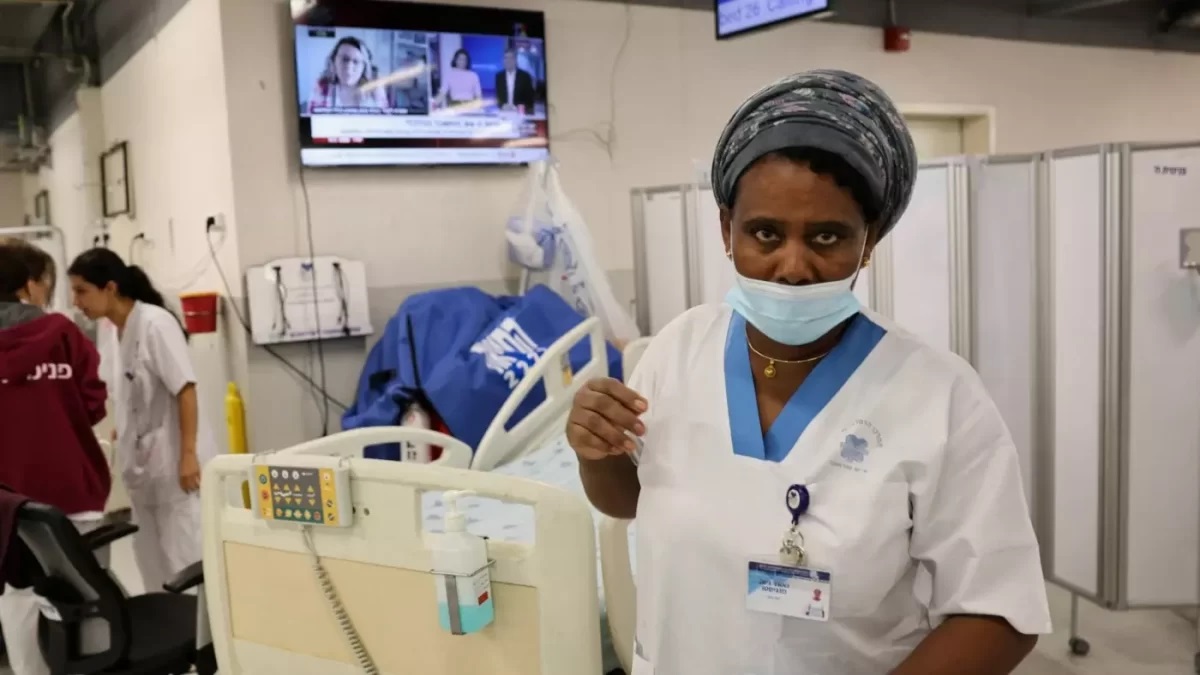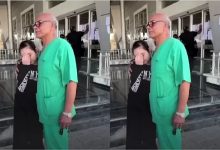Silenced Voices: The Arrest of a Palestinian Doctor in Tel Aviv

Watan-A Palestinian female doctor, who was a trainee, has been arrested and prohibited from entering Israel. She is now unable to work due to accusations of banning her colleagues on social media.
The Palestinian doctor, originally from Nablus in the occupied West Bank and known for her excellent and hardworking medical skills, states that she did not have any active social media accounts in the first place.
She had been working at Tel Hashomer Hospital in Tel Aviv, also known as Sheba Medical Center, for three years as a trainee doctor. Before becoming a trainee, she volunteered at the hospital for a year to assist during the COVID-19 pandemic.
She told Middle East Eye, “It’s extremely difficult… the hardest thing is that I lost my job just because someone complained against me, suspecting something for no reason.”
Increase in Targeting Palestinians
The case of the Palestinian trainee doctor is one of several instances where Palestinians and left-wing Jewish Israelis have been targeted for their use of social media since October 7.
On October 23, the Israeli police arrived at the hospital and questioned several individuals about her whereabouts. She recalled, “They looked at everyone as if I were a criminal.”
The police informed her that she was wanted for questioning without providing any reason. They seized her mobile phone, searched her bag, and then escorted her to a car outside the emergency department.
She added, “When I arrived at the police station, they asked me if I knew how to speak Hebrew. I told them that I speak Hebrew in the medical field, and I requested the presence of a lawyer, but they refused.”
Interrogation about Something that Never Happened
During the interrogation, one of the police officers questioned the trainee doctor about the duration of her intended work at the hospital and when she planned to return to Nablus.
She recalls, “She asked me about my relationship with my colleagues, and I responded that everything was normal with no issues. According to them, I was one of the best doctors there in the department where I specialized, and they requested me to work.”
She adds, “She asked me about what had recently happened. I didn’t understand her question. She told me, ‘Why did you block some of your colleagues on social media?’ So I told her I hadn’t blocked anyone.”
Later, the trainee doctor was informed that someone had filed a complaint accusing her of blocking them on social media. She explained, “So I told her that in August, I deleted all my accounts on social media, like Facebook and Instagram, from my phone because I wanted to focus on my studies.”
She continued, “I didn’t understand why there would be a problem if I wanted to block anyone from my social media accounts – and besides, I hadn’t blocked anyone.”
Days later, one of her colleagues asked her if she had blocked him on social media. Her low online activity raised suspicions that she might be hiding something.
The police requested the trainee doctor to log into her suspended Instagram account and provide her phone’s password. She was told she could leave, but her phone had to remain with the police.
She recounts, “I asked them: Did you come to the hospital and interrogate me just to ask me a question about blocking people on social media? They said yes. I asked them, what is the charge? And they didn’t respond.”
The trainee doctor returned to work. After three weeks, she took leave to visit her family.
When she tried to return to Israel at the Eliyahu checkpoint between Nablus and Qalqilya, Israeli soldiers refused her entry. She said, “I discovered that my crossing permit had been canceled.”
The trainee doctor was denied entry to Israel, and no one informed her why or on what basis.






